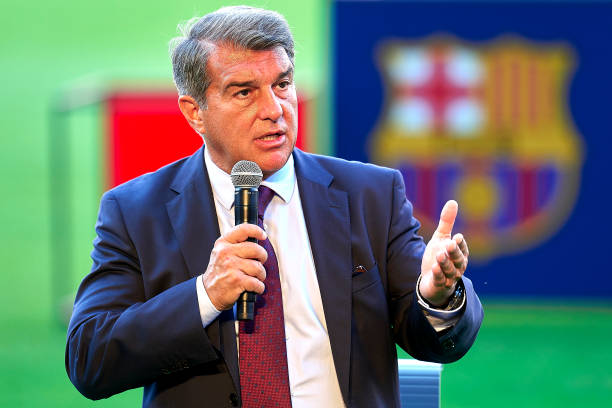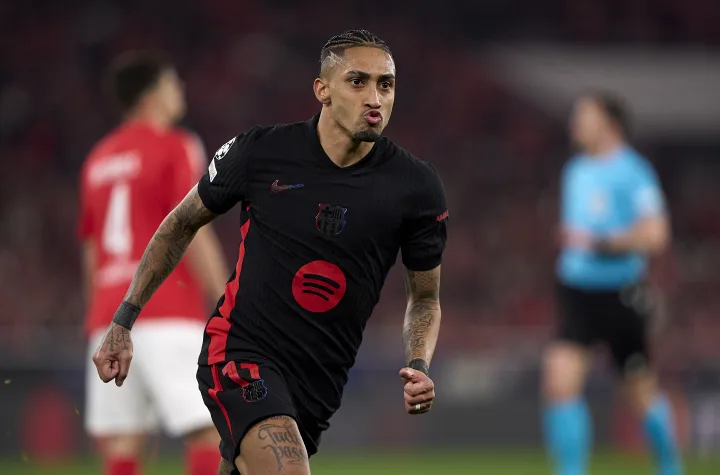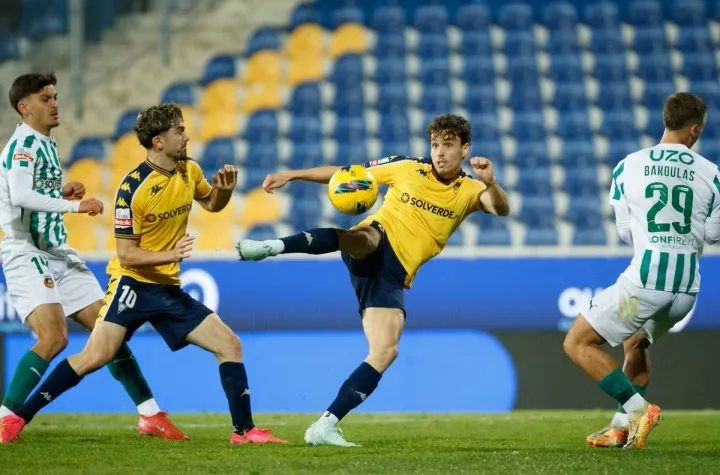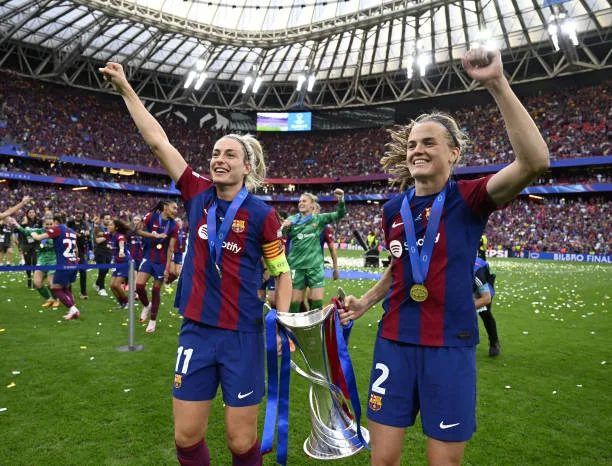
Joan Laporta, president of FC Barcelona at the Camp Nou in 2021 / PEDRO SALADO/QUALITY SPORT IMAGES via GETTY IMAGES

In a heart-to-heart interview with Catalan TV station, TV3, on El Factor Clau (the key factor), Joan Laporta spoke at length about his tenure so far, the LaLiga deals, debts, and much more.
Joan Laporta’s second stint as Barcelona president has been quite turbulent: from Lionel Messi not staying to resolving some of the club’s huge debt issues to the Camp Nou renovations.
It has been quite the ride for Laporta, but the president has won the hearts of many of the Blaugrana faithful, and in a recent interview with TV3, decided to open up about many topics.
On the Negreira case:
Joan Laporta to TV3: “The Negreira case is a campaign against Barça, but I think we should look inwards as well. It was a case we inherited [from the previous board], which was about officiating advice, which isn’t a crime. Barça have never bribed a referee.”
“Beyond the fact that we maybe didn’t sufficiently value what it meant to have the son of a former referee give us advice, it’s been taken out of proportion, because this [the Negreira case] is an orchestrated campaign to transform Barça to a public limited company.”
“This, I link to the fact that we didn’t sign the CVC deal, fortunately, which would’ve mortgaged Barça for half a century.”
“The CVC is a fund that’s kept 10.95% of the clubs’ TV rights. It was still a loan; we didn’t see it as one that interested us.”
“In fact, we needed something like that to save the club from the debt we were in, and what we did was sell 25% of our TV rights to Sixth Street for 686 million euros, and with that, we saved the club.”
“We haven’t fixed everything [yet], because we still have a deficit of 200 million euros that we’re going at with an austerity plan [a political-economic plan, cutting non-essential aspects], but what we didn’t see [as a good choice] was the CVC [deal].”
On the LaLiga deal for 10% of TV rights for 50 years:
“One of the conditions [of the deal] was for [Javier] Tebas to stay in charge for, at first, 15 years, then, if I recall correctly, 8 years.”
“The salary he has is a salary that… I was looking at the salary of bank presidents: double that.”
“We were told that, if we agreed to this, it [the league] would give us 15% fair play. They were given a share of fair play in the clubs.”
“If it’s blackmail? Well, that’s for the court [to decide].”
The reporter then replied with a hypothetical: “If you sign a contract with me that helps me stay wealthy for 10 to 15 years, I’ll let you sign [players]. If he gets the money from other places, he won’t let you sign. That’s blackmail, right?”
Joan Laporta to TV3: “You won’t be able to sign or.. I won’t make it easy for you to sign [players]. Yes, yes of course. That is how we saw it, and then we said no [to the deal], which, of course, crossed us out.”
“And you reach the f****** conclusion that… very lawfully [speaking], Catalonia could be inside the state or outside the state. But especially, inside the state, for all the things that make us Catalan, there are some that can’t live it down. One of the things they can’t digest is that one of the elements of our identity is to…. [takes deep breath] be Barcelona. They can’t digest it, the try to end it by all means. And here, the heads of LaLiga, the CVC, and other established people – that’s what they want. They know we’ll defend Barça’s interests, to the last drop of our blood. And we do that, because we love Barça.”
On Barça being a democracy rather than a public limited company:
“It’s good for Barça that it isn’t a public company, because it means we belong to the community, and Barça belongs to the city, belongs to the country. Obviously, the socís [club members] are your partners and associates.”
“And it also allows us to do many other things that [other] clubs can’t do. For example, we [control] what we want to attach to the club’s values.”
“For Barça, I would sum it up like this: [Johan] Cruyff, [La] Masía, Catalonia, Unicef.”
“You can understand ‘Cruyff’ as a genuine footballing style, La [Masía], the you can understand La Masía as a factory of dreams, in that when players come here, they dream of playing with the first team.”
“For Catalonia: you can’t separate that [from Barça]. It’s an element that you can’t separate, the catalanness of democracy and Barcelona are inseparable.”
“Also, when we say UNICEF, it’s to illustrate that Barça has a social commitment, so we have a commitment with our values.”
On going from UNICEF to Qatar Airways:
“At first, I thought it was a big mistake, because it doesn’t align with the club’s values. The essence [of the club] has to be respected, and that [sponsorship by Qatar] doesn’t align with our essence.”
“It didn’t go well. Because it also meant that the Qataris themselves came to sign Neymar for 222 million euros, which caused a bad reaction here where the money was spent poorly.”
On Femení:
“When I came back for my second term, we saw that Femení was doing well. And what do we do? Take advantage of it.”
“When we arrived, they had just won the [UEFA Women’s] Champions League, but credit for that goes to those before me [in charge of Barcelona]. That isn’t courtesy of my board.”
“Listen, we’ve broken two historical records here,” Laporta said from the Camp Nou.
On the stadium being full for a Femení game:
“The truth is that was spectacular, and it made me proud to be Barça’s president, and see how this entire stadium got packed to watch a Femení game.”
“Besides, we have a team that wins, you know everyone likes to win, but they play well too.”
Joan Laporta’s first tenure with Barcelona was between 2003 and 2010, before he got re-elected, in 2021, beating Victor Font, Emili Rousaud and Agustí Benedito to office.





More articles
“I never imagined that Raphinha could reach Barcelona”
Jandro Orellana: “I hope Barcelona wins La Liga”
All Roads Lead To Lisbon